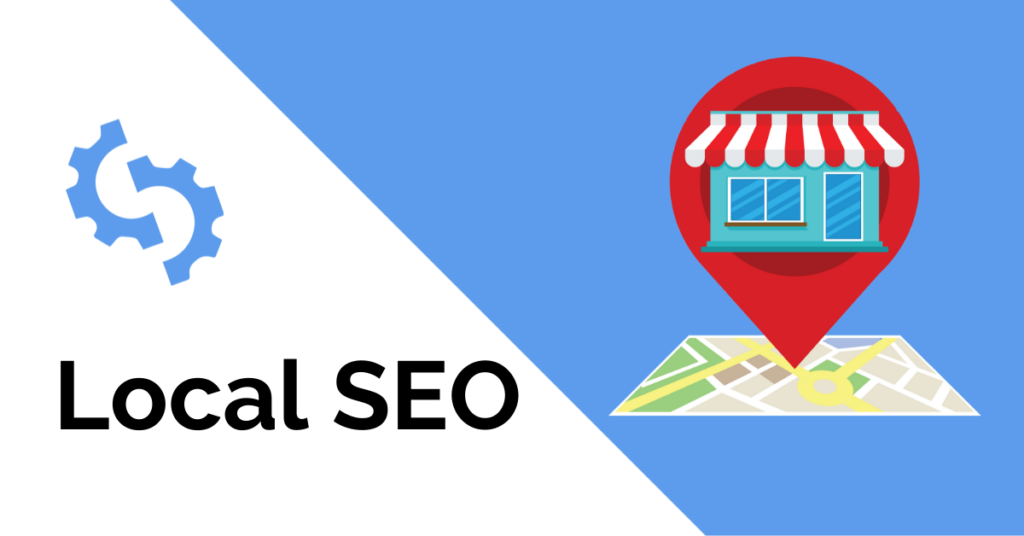In today’s digital-first world, the local SEO is no longer alternative to small businesses-this is necessary. Whether you are a Neberhood Cafe, a boutique salon, or a local service provider, adaptation for local search can differentiate between potential customers found or lost in competition.
What is Local SEO?

Local SEO, or local search engine is the process of customizing your online appearance to attract more businesses from relevant local discoveries on Google and other search engines. These discoveries include questions like “Plumber close to me” or “” [your city] the best bakery “. The goal of the local SEO is to ensure that your business appears prominently in local search results, especially in “local packs” – maps and listings that appear above organic results on Google.
Why Local SEO is a Game-Changer for Small Businesses
Small and local businesses do not always have a marketing budget to compete with national brands, but local SEOs give playground levels. Why does it matter here:
- 72% of consumers who make a local discovery go to a store within 5 miles.
- 88% of people who discover the local business on a trip or call of their phone within a day.
- Google’s local 3-pack (map listing) receives about 50% clicks for local discoveries.
This means that if your business is not visible locally, you are missing valuable customers – literally around the corner.
Why is Local SEO Important for Small Businesses?

Small businesses thrive on local legs traffic and community engagement. Why the local SEO here is a game-changer:
Increase in visibility:
When someone discovers “near me” services, a strong local SEO strategy keeps your business at the front and center.
Mobile adaptation:
With more people searching on smartphones, appearing in local results helps you catch the surrounding customers in real time.
Google Maps Integration:
Being accurately listed helps users to find you quickly using Google Maps.
Better conversion rate:
Local discoveries have high intentions – users are more likely to travel or call after finding your business.
Creates the trust:
appearing in local listings and reviews creates reliability among potential customers.
Key Elements of a Strong Local SEO Strategy
Here are the core components you should focus on to boost your local SEO:
1. Google Business Profile Optimization
Claim and optimize your Google Business Profile (formerly Google My Business). This is the most critical step in local SEO. Make sure your profile includes:
- Accurate business name, address, and phone number (NAP)
- Business hours
- High-quality photos
- Services and products
- Regular updates and posts
2. Local Keywords Targeting
Use keywords that reflect your location and services. For example:
- “Bakery in Andheri”
- “Best dentist near MG Road”
- “Affordable home cleaning in Noida”
Include these in your website’s meta titles, descriptions, headers, and page content.
3. Local Listings and Citations
Ensure your business is listed consistently across online directories like Yelp, JustDial, Sulekha, and Yellow Pages. Inconsistent information can harm your rankings.
4. Online Reviews and Ratings
Encourage satisfied customers to leave positive reviews on Google and other platforms. Responding to reviews — both good and bad — shows you value customer feedback.
5. Mobile-Friendly Website
Most local searches happen on mobile devices. Make sure your website loads quickly and looks great on smartphones.
6. Location-Specific Content
Create blog posts or landing pages about local events, partnerships, or services you offer in specific areas. This helps your website show up for geographically relevant searches.
Benefits of Local SEO For Small Businesses

- Increased web traffic from nearby customers
- More in-store visits and phone calls
- Improved online reputation
- Competitive edge over big brands in your area
- Stronger local customer loyalty
Conclusion
For small businesses aimed at growing in its communities, local SEO is not only beneficial-this is a strategy. By optimizing your online appearance for local discovery, you keep your brand in the right position, where your potential customers are looking: in their neighborhood, on their mobile phone, and on their favorite maps and search engines. If you have not yet invested in local SEOs, then it’s time. Start with your Google business profile, gather authentic reviews, and create materials that reflect your local expertise – and look at your business.
Also Read : Omnipresent SEO: The Future of Search Engine Optimization
